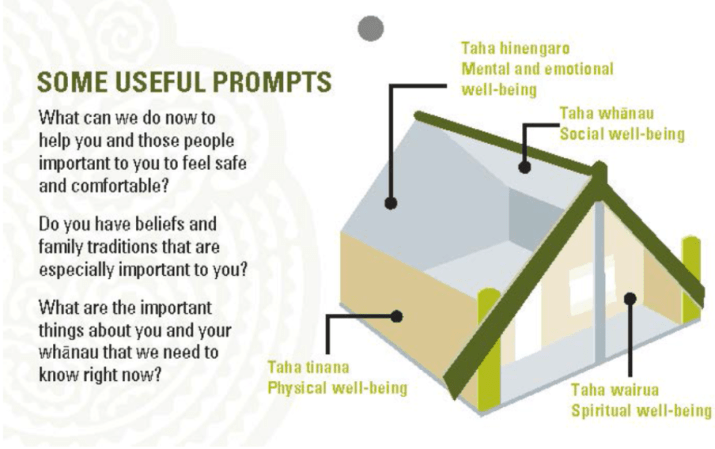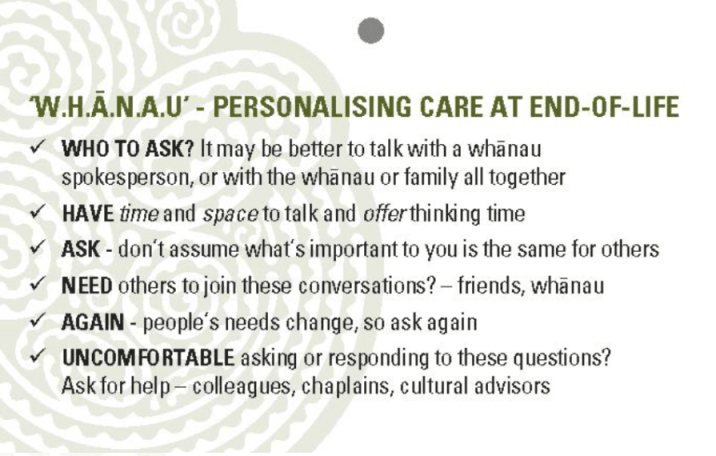Culture refers to a set of beliefs, values, norms and practices that are learned, shared and influence a person’s thoughts, expressions and actions in a patterned way.
Do not hesitate to ask about relevant cultural aspects of caring for a resident.
Be aware of customs that show respect for the resident and their family members.
Understand and respect that people have different reactions towards death and dying.
Remember that just because someone can understand English they may not be able to read it as well.
Communicate in ways that are clear and appropriate. Avoid jargon.
We need to be aware of how our own cultural beliefs, values and practices may influence the way you deliver care.1
Individualising Care
This prompt card provides potential conversation starter questions to guide conversations and includes a background image of Te Whare Tapa Whā (Durie 1985) on one side, as a reminder of the need for a holistic approach to care. On the other side, information is provided to guide conversations to ensure that care for people can be personalized. The card could be laminated and provided to all staff who are involved in the care of people in their last days of life.
W.H.Ā.N.A.U: Personalizing care at end of life1


Quality palliative care requires identifying and responding to the persons specific needs including their cultural beliefs and practices.
1 Batten L, Holdaway M, Allan S, Randall, C., Marshall, B. & Clark, J.(2014). Culturally Appropriate End-of-life Care for Māori. Palmerston North: Massey University/Health Research Council.

